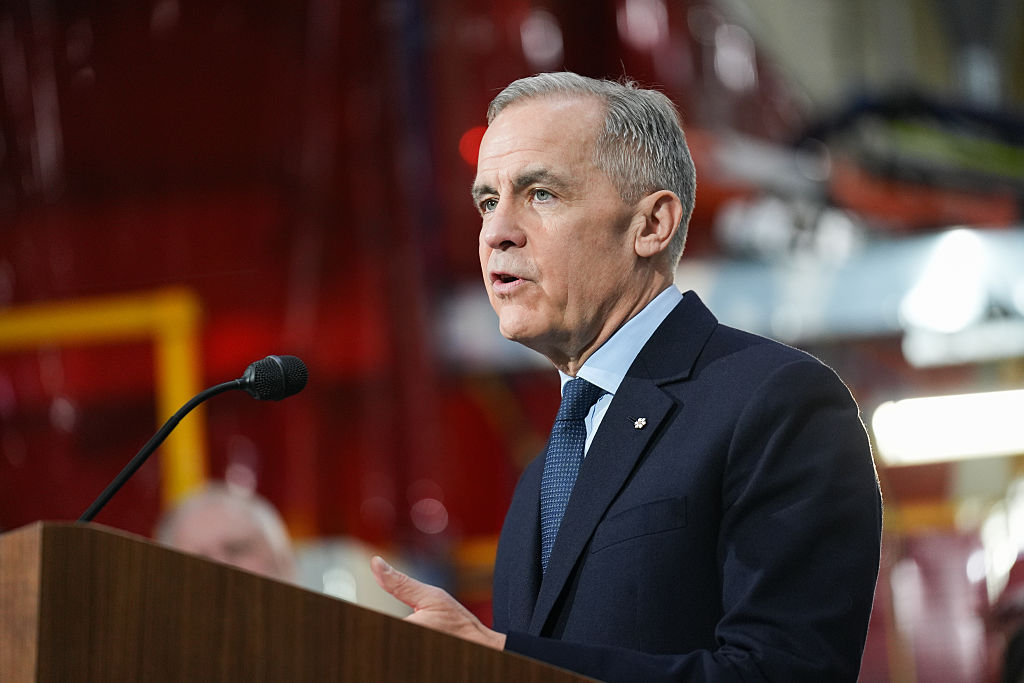Capturing the Americas Opportunity
Capturing the Americas Opportunity
Canadian Minister of International Trade David Emerson emphasizes that strategic interests reach well beyond North America. His country is committed to helping its hemispheric partners create opportunities and reduce poverty through greater economic cooperation.
Because of our long history of friendship and cooperation with the United States, and our position in the great North American partnership with the United States and Mexico, one could be forgiven for thinking that Canada’s interests end there.
But Canada’s Prime Minister Stephen Harper has made it very clear that our interests and strategic vision reach well beyond the North American Free Trade Agreement (NAFTA). We see ourselves as part of a larger, hemispheric family; a family of states committed to common goals like democracy, security, and prosperity.
Prosperity requires a vibrant business environment. Business relies on a free, secure, and rules-based society. And prosperity provides the foundation for creating jobs, wealth, and opportunity for our citizens. It is for these reasons that Canada is committed to creating a predictable business environment, to fostering effective and accountable governance structures, and to sharing security responsibilities in the Americas. Canada’s extensive efforts to help Haiti break out of the destabilizing cycle of violence and poverty illustrates the depth of that commitment.
But these efforts must be supported by economic cooperation. There is no better way to reduce poverty than through the opportunities made available by a strong economy, and by those thousands of daily business interactions that invigorate and strengthen the economies of the region, and the web of personal and business relationships that add depth and durability to bilateral relationships.
We have made an excellent start, developing integrated and globally competitive commercial platforms that are fundamentally rooted in the Americas. When Canada and the United States joined with Mexico, for instance, we created the single-largest free trade zone in the world. NAFTA has brought massive increases in trade and investment among our countries since it was signed.
Brazil’s incredible transformation provides a further example of the vast potential for deeper commercial links within the Americas. Canada expects to double Canada-Brazil trade and investment by 2012. Similarly, our free trade agreement (FTA) with Chile will be celebrating its tenth anniversary this July; in fact, Canada was one of Chile’s very first FTA partners. We recently signed a Foreign Investment Promotion and Protection Agreement with Peru, and this year marks the fifth anniversary of the entry into force of our FTA with Costa Rica.
These examples prove that at many levels — bilateral, trilateral, multilateral — we are gradually transforming our history as neighbours, partners, and friends into economic opportunity for our people.
But globalization compels us to take the next step. The pressure of stiff global competition and the challenges of surviving in a world of incredibly efficient and competitive supply chains rooted in places like China, India, and the EU, are changing the way we do business.
Inward-looking protectionism is not a viable response. It represents the proverbial "finger in the dike." It offers soothing short-term containment, but the dike ultimately gives way.
Canada believes that deeper economic cooperation with our neighbours, partners, and friends is the path to take. We need to work together to create a competitive, integrated Western Hemispheric platform for trade and investment. To do this, Canada is committed to reengaging relationships with our friends and partners throughout the hemisphere: in the United States, in Mexico, in the Caribbean, and in Central and South America.
Our government’s economic plan, Advantage Canada, articulates a strategy for strengthening the foundation of our success, namely the North American platform. Through NAFTA, we have created powerful, integrated business networks within North America, and we are now working on a range of initiatives that will bring the Mexican, U.S., and Canadian economies even closer together in the years ahead.
But our plan of engagement also reaches far beyond North America, and includes our friends and partners in the Americas. Throughout the region, we want to create new trade and investment agreements that will further energize and expand our business relationships.
This includes concluding FTA negotiations with the Central America Four: El Salvador, Guatemala, Honduras, and Nicaragua. We are also committed to achieving free trade with the Dominican Republic, with the countries of the Andean Community—Colombia and Peru in particular—and with the Caribbean Community (CARICOM). Discussions with each of these partners have been very productive, and we expect to be in a position to launch FTA negotiations in 2007.
Canada continues to recognize the key role of the World Trade Organization (WTO) in fostering cohesion and providing a framework for open and fair world trade and commerce. Notwithstanding the outcome of the current round of WTO trade negotiations, we believe regional trade arrangements should continue to build on the WTO framework to deepen commercial ties among various clusters of countries. Canada must, and will respond with its own regional and bilateral trade agenda. And the Americas are a key priority.
Over the coming years, our partners and friends throughout the Americas will see a new commitment on Canada’s part to reach out to them, and make our hemisphere stronger politically, socially, and economically.
The time has come to look to our future, not through the narrow lens of nationalism, but with a wider hemispheric perspective, one that will help us build a safe, prosperous, and secure future for individuals, families and communities throughout the Americas.
(Excerpted from Approved Speech Delivered in Washington, May 2, 2007)
David Emerson was first elected to the House of Commons of Canada in 2004 and was named Minister of Industry in July 2004. He was re-elected in 2006 and currently serves as Minister of International Trade and Minister for the Pacific Gateway and the Vancouver-Whistler Olympics.







